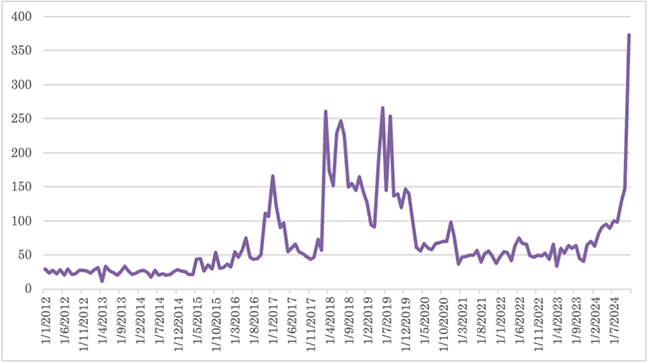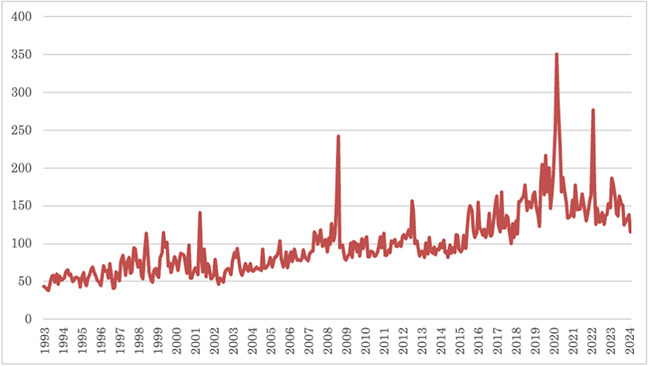| Author Name | Shiro ARMSTRONG (Non-Resident Fellow, RIETI) |
|---|---|
| Download / Links |
This Non Technical Summary does not constitute part of the above-captioned Discussion Paper but has been prepared for the purpose of providing a bold outline of the paper, based on findings from the analysis for the paper and focusing primarily on their implications for policy. For details of the analysis, read the captioned Discussion Paper. Views expressed in this Non Technical Summary are solely those of the individual author(s), and do not necessarily represent the views of the Research Institute of Economy, Trade and Industry (RIETI).
Japan sits at the fault line of great power strategic competition with deep economic interdependence with, and proximity to, the Chinese economy and reliance on the United States for technology and security. Japan’s integration into the global economy has underpinned its economic development and prosperity, and also its energy, food and economic security.
In response to international supply chain disruptions, greater global trade policy uncertainty (see Figure 1), weaponization of trade, and rising tensions between China and the United States (see Figure 2), Japan has introduced new government machinery and economic security policies that aim to protect Japan’s economic security interests.

[Click to enlarge]

[Click to enlarge]
Increased government intervention in the market in the pursuit of economic security is not unique to Japan, especially after the global pandemic. The issue is further complicated by the imperative of the energy transition that also drives increased government intervention. Japan’s economic security measures aim to enhance economic resilience and reduce risks, but they come with their own risks to Japanese openness, competitiveness and productivity.
It is too soon to make any comprehensive assessment of the effect of the new economic security policies on Japan’s private sector and economic openness and dynamism more generally. But key questions should be assessed once data become available:
- The extent of policy-induced reduction to interdependence with China and what costs that entails
- Whether economic security policies help to manage risks and shocks, or could they exacerbate the retreat to closed markets and further add to regional uncertainty
- What about the priority attached to defending the ‘open global economic system’ or ‘preserving the free trade system’ that has been central to Japan’s economic security?
A key question for Japan is whether its strategic approach assumes, at the margin, or in new policies, that prosperity and security are substitutes where economic efficiency has to be sacrificed for national security, or whether it can instead advance a strategy and policies that see prosperity and security as complements to the achievement of both.
- Reference(s)
-
- Caldara, Dario, Matteo Iacoviello, Patrick Molligo, Andrea Prestipino, and Andrea Raffo (2020), "The Economic Effects of Trade Policy Uncertainty," Journal of Monetary Economics, 109, pp.38-59.
- Rogers, John H. and Sun, Bo and Sun, Tony, U.S.-China Tension (May 3, 2024). Available at SSRN: https://ssrn.com/abstract=4815838 or http://dx.doi.org/10.2139/ssrn.4815838

